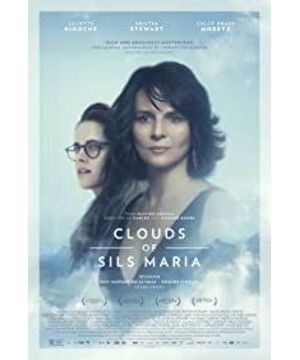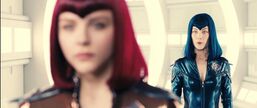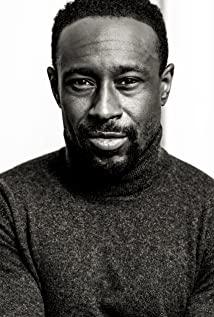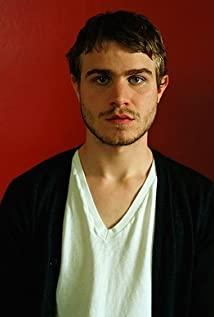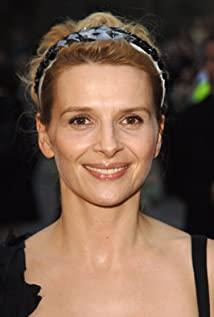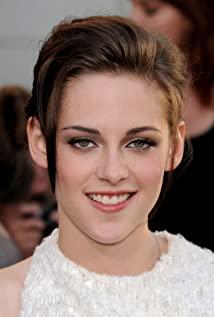Mirror 1: Maria
Juliet Binoche played the middle-aged actress Maria, her face is gone but she still has enough charm to shock the audience, clinging to the classics, she looks full of superiority, but in her heart she feels a little bit of disdain for the Internet era. Panic. Binoche’s appearance has always been clear and even handsome, but under this appearance, her femininity is particularly prominent, sensitive and slightly neurotic personality, which is portrayed subtlely on a restrained face And meticulous.
Almost all the men in Maria's life hide in the shadows. The "future ex-husband" throughout the film only appears as a divorced property disputer in the phone calls, and he can't even hear his voice. There is no more writing besides it. And her "first love", actor Henryk, is shown as a snob. He was the enlightenment of Maria’s emotions. They had a relationship when she first collaborated on a film at the age of 18. Henryk abandoned her after the filming ended. It was not until Maria became famous that 10 years later, he tried to save the old days. His lover, and Maria returned him with only decades of consistent disdain. The only positive male image-screenwriter Wilhelm is Maria's respected mentor, but he also became a bleak figure in the mountains of Sils Maria in the form of suicide.
Mirror image two: Valentine
Maria's assistant Valentine, like any rebellious adolescent heroine, is casual and even a little stubborn, with a stubborn stubborn stubbornness in her habitually looking down eyes. She is keen on celebrity gossip and video websites, and pursues the "cool" that young people desire for self-expression. She believes that popcorn science fiction movies can also show different aspects of human nature.
And the men in her life are also concealed. Valentine was absent when Maria was attending the dinner and went on a date with the photographer. What was the situation, the film did not show it. On the second trip to the appointment, Valentine drove through the intertwined misty mountains in the chaos of rock music, and finally ended in a dazed vomit. The date with the photographer is still a mystery.
Mirror Three: Jo-Ann
Jo-Ann is a popular rebellious idol in Hollywood. In the interview, she proudly ridiculed her assault and arrest, as if she was ignorant but ridiculed, attracting a burst of laughter from the audience. Voice, seemingly indifferent to his public image. But she is by no means a reckless and impulsive ignorant girl. From the compliments before she cooperated with Maria, to the self-righteous rejection of Maria on the side of the stage during rehearsal, the shrewd image of being good at manipulating people's hearts makes people love and hate.
She is the only character who has a rivalry with her boyfriend, but her boyfriend, the novelist Christopher, also has a negative image. He associated with Jo-Ann with his wife behind his back, did not dare to face the doubts of the two women, and even met with Jo-Ann when his wife tried to commit suicide while still being rescued in the hospital. His cowardice and selfishness were fully revealed.
Dialogue: Text is an object, it changes according to where you are.
A large part of the advancement of the film is driven by the dialogue between Maria and Valentine, and the subtle change in emotion between the two also metaphors the gradual transformation of Maria and her past self from confrontation to integration. In this process, Maria prepared to perform her debut 20 years ago, Maloja Snake, which played a vital role. The female boss Helena and female assistant Sigrid in this play are just imitations of Maria and Valentine.
In the play, Helena is obsessed with Sigrid's youthful vitality and generously contributed the fruits she had exchanged for her youth. However, she was defeated in emotional wrestling with Sigrid and finally committed suicide because of Sigrid's unfeeling abandonment. And the relationship between Maria and Valentine, although not as fiercely hurt as in the play, it also implies ambiguous control and jealousy. Maria was dissatisfied but curious because Valentine was out on a date, and she quietly opened Valentine's door to take a peek in the early morning of the next day. In the most exciting rivalry between the two, Maria and Valentine rehearsed the lines in Maloja Snake among the mountains. The lines were so integrated with the identities of the two that the audience often couldn't tell whether the two were rehearsing or a real dialogue. And feel incomprehensible. Maria is also in this confrontation, seeing that she has changed from a youthful selfish and energetic Sigrid to a vicissitudes of life and even despair Helena, her memory of her own years has turned into possessiveness and jealousy of girls, and The resentment and dissatisfaction with oneself. These Maria's own conflicts poured into Valentine during the rehearsal time and time again, which also made the relationship between the two close friends gradually ossified and withered. On the way to watch the cloud snake, Valentine finally pours out her dissatisfaction with Maria and expresses her wish to leave Maria. Until Maria saw Sils Maria’s cloud snake wonderland in a daze, Valentine suddenly disappeared with the appearance of the wonder. Maria finally merged with her past self in constant conflict, and calmly accepted her present self. .
Another image that speaks to Maria is the shrewd and beautiful Jo-Ann, a living replica of Sigrid, who also staged a scene from pleasing to discarding with Maria. At the end of the movie, she even refused to give Maria a few seconds of nostalgia in the scene, but turned around and left unceremoniously. But Jo-Ann's unfeeling can no longer hurt Maria. A few minutes before the start of the stage play, a screenwriter expressed his admiration for her. In his opinion, Maria’s beauty is beyond time, and Jo-Ann is just a bubble of a sad era. This is undoubtedly right. The ruthless rebuttal of women being treated as purely observable objects.
In the end, Maria was able to calmly accept her old age through a dialogue with herself. After the dimming lights before the opening of the drama, she will be greeted with ease, not the fog of Sils Maria, but the light.
View more about Clouds of Sils Maria reviews


